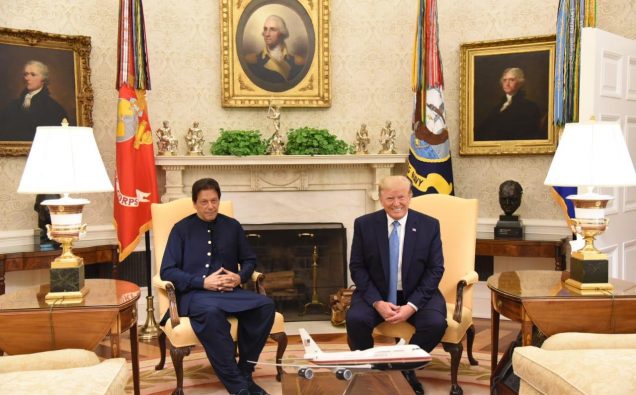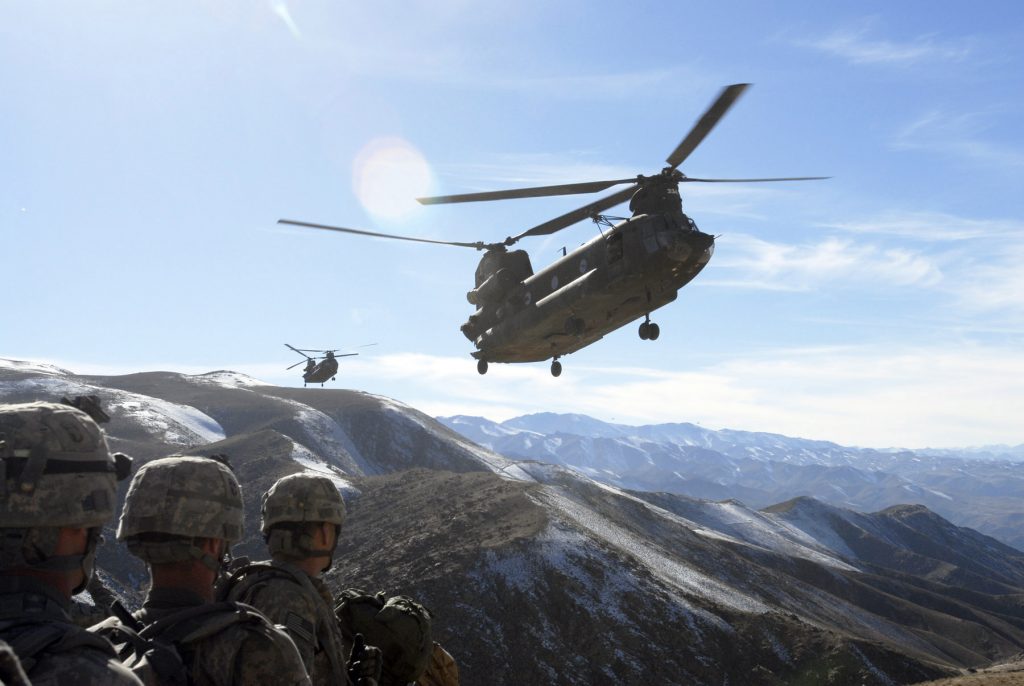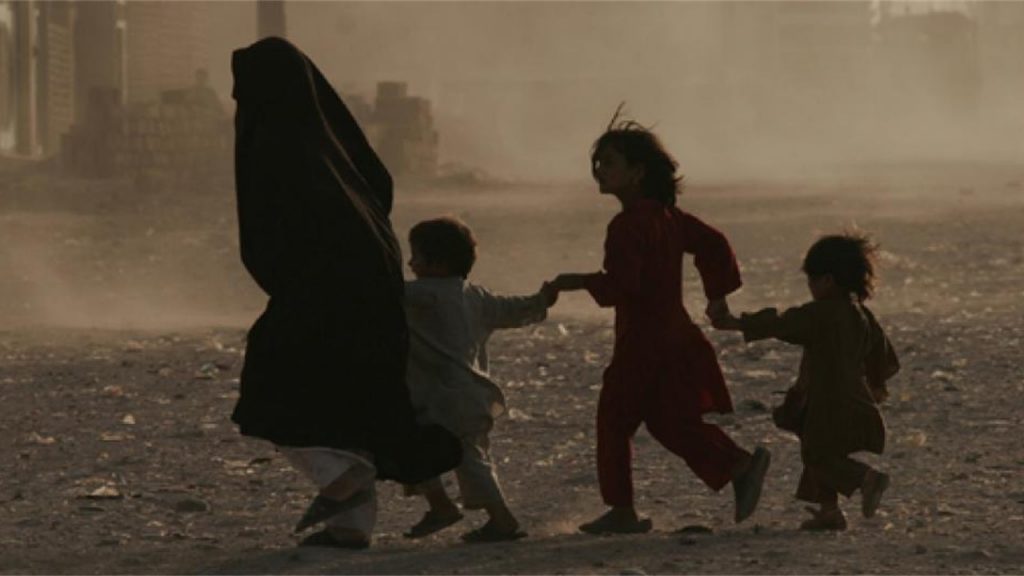
Amid reports that the United States and the Afghan Taliban are on the verge of reaching an agreement on the way out of the Afghan conflict, Pakistan has reassured Washington of its commitment to facilitate peace and reconciliation process in the neighboring country.
Prime Minister Imran Khan, fresh from his talks with President Donald Trump, said Islamabad will remained engaged with the U.S. and other stakeholders to realize the goal of peace and stability in Afghanistan – a high priority for the Trump Administration ahead of 2020 elections.
Khan’s remarks came as U.S. Special Representative for Afghanistan Reconciliation, Ambassador Zalmay Khalilzad called on him Thursday before his travel to Doha, Qatar, where he will head talks with the Taliban representatives.

Standing by on a hill top, Soldiers with the 101st Division Special Troops Battalion, 101st Airborne Division watch as two Chinook helicopters fly in to take them back to Bagram Air Field, Afghanistan Nov. 4, 2008. The Soldiers searched a small village in the valley below for IED making materials and facilities. (Photo by Spc. Mary L. Gonzalez, CJTF-101 Public Affairs)
Citing his recent interaction with President Trump in Washington, PM Khan emphasized that a peaceful and stable Afghanistan is in the interest of Pakistan as well as of the broader region.
Khan expressed satisfaction at the “evolving international consensus” and interest in fully supporting efforts to achieve long term peace and stability in Afghanistan.
The PM underlined the need for “inclusive intra-Afghan” negotiations toward having a road map for the future of Afghanistan.
After PM Khan’s White House parleys with Trump, the U.S. Secretary of State Mike Pompeo expressed the Administration’s desire to pull out American troops from Afghanistan before 2020 elections in which Trump will seek reelection.
Striking an agreement for peace in Afghanistan through intra-Afghan negotiation and end the longest war in the U.S. history – launched after 9/11 terrorist attacks – is a major foreign policy goal of the Trump Administration.
The goal has been a reason behind recent uptick in the U.S.-Pakistan relations, which have seen many ups and downs in the last two decades.
Meanwhile, the Afghan war has become unpopular in the United States as it has not only been costly with hundreds of billions spent but it has also been responsible for deaths of thousands of American troops.
The Afghans and Pakistanis have also paid a heavy price for the war on terror that began with invasion of Afghanistan in late 2001.
U.S. Special Envoy Khalilzad also discussed progress with Foreign Minister Shah Mehmood Qureshi and shared the outcomes of the 7th round of US-Taliban talks in the Qatari capital and his recent engagements in Kabul.
Khalilzad sees his recent visit to Afghanistan as the “most productive.”
“It was also stressed that taking the Afghan peace process forward remained a shared responsibility,” Pakistan’s Foreign Ministry statemen in a clear reference to the complexity of the negotiations.
Islamabad has hosted millions of Afghan refugees since the 1980’s fight against Soviet occupation of the landlocked western neighbor and is considered the most influential player in Afghanistan because of its links with the Taliban groups dating back to that era.



















